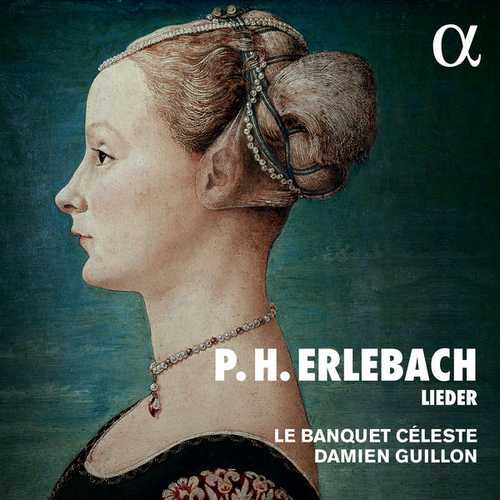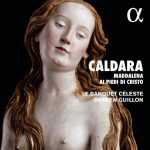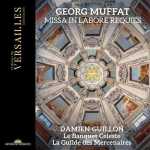
Composer: Philipp Heinrich Erlebach
Performer: Le Banquet Céleste
Conductor: Damien Guillon
Format: FLAC (tracks)
Label: Alpha
Release: 2021
Size: 1.29 GB
Recovery: +3%
Scan: yes
01. Seine Not recht überlegen, Wird manch Tränen – Bad erregen (from Harmonische Freude Musicalischer Freunde)
02. Des Tadlers Stich, Verlache ich (from Harmonische Freude Musicalischer Freunde)
03. Liebe in Abwesenheit, Grünet durch Beständigkeit (from Harmonische Freude Musicalischer Freunde)
Sonata quinta in B flat
04. I. Adagio – Allegro – Adagio
05. II. Allemande
06. III. Courante
07. IV. Sarabande – Variatio
08. V. Gigue
09. Wer sich dem Himmel übergeben, Wird endlich Ruh’ und Glück erleben (from Harmonische Freude Musicalischer Freunde)
10. An Jammer und Beschwerlichkeit, da fehlt es hier zu keiner Zeit (from Harmonische Freude Musicalischer Freunde)
11. Auf des Kreuzes Finsternis, folgt die Sonne ganz gewiß (from Harmonische Freude Musicalischer Freunde)
Sonata Seconda in E minor
12. I. Adagio
13. II. Allegro
14. III. Adagio
15. IV. Allemande
16. V. Courante
17. VI. Sarabande – Variatio
18. VII. Gigue
19. Ich finde schlechte Freud, Bei Unempfindlichkeit (from Harmonische Freude Musicalischer Freunde)
20. Die Zeit verkehret, Was uns beschweret
Accompanied by his ensemble Le Banquet Céleste, the countertenor Damien Guillon places his voice at the service of a programme of vocal pieces by the German Baroque composer Philipp Heinrich Erlebach, a large part of whose output was destroyed in a fire at Rudolstadt Castle in 1735. Among the works that have come down to us are the two collections Harmonische Freude musikalischer Freunde, containing respectively fifty and twenty-five arias for one to four solo voices, instrumental ensemble and basso continuo. Most of the German texts of these pieces depict humankind at the mercy of an unpredictable and volatile destiny. Alongside natural phenomena such as storms, dark clouds and withered leaves, the poet also chooses the expression ‘bloody comets’ as a metaphor for torment and ‘the distress of the heart’. In fact, the biggest comet of the seventeenth century appeared in Europe in 1680: contemporaries feared these celestial bodies, seeing them as bad omens.



